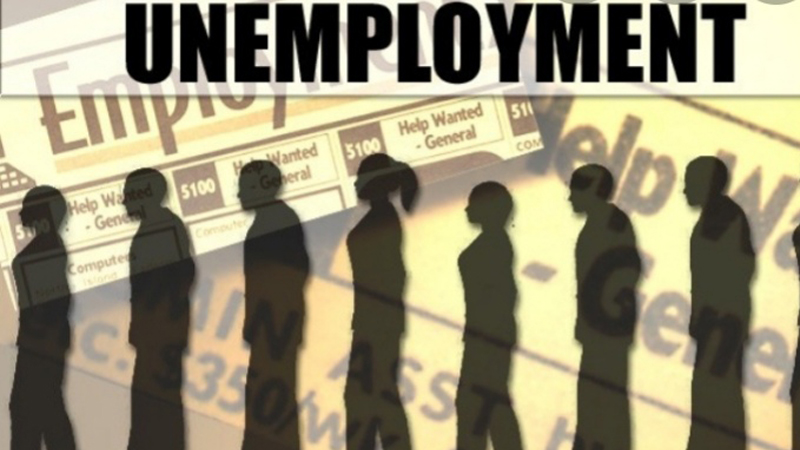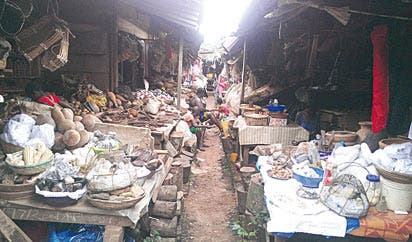WORSENING ECONOMIC CRISIS: WORKERS AND YOUTH BEAR THE BRUNT OF RULING CLASS FAILURE
Wole Olubanji (Engels)

It is only the common people that know the full extent of the capitalist economic crisis facing Nigeria. The prices of household items, especially food items, are becoming unbearable for many families. This is why the masses cannot take the Buhari regime seriously when it praises itself for taking Nigeria out of an economic recession. Facts remain that conditions of living are worsening for people who are not billionaires or politicians.
Recent data from the National Bureau of Statistics (NBS) are an indictment of the government and they show that the masses have no enviable future under capitalism. The NBS reflected in recently published data that Nigeria now has 33.3% unemployed people in a workforce of 122 million people. Going by the NBS data, one out of two Nigeria is unemployed or cannot tell whether he/she has a job.
Since this administration took office, the unemployment situation has grown worse with every new data the NBS allowed us to see. One thing is clear: the government’s strategy of job creation is nonsense and only designed to fool the people. This is a government that celebrates monthly disbursement of N30, 000 to 150, 000 beneficiaries of Npower or its other Social Investment Programmes. Meanwhile, nothing less than creating 5 million decent jobs every year can resolve Nigeria’s unemployment situation.
But it is not only unemployed people that agonise under Nigeria’s economic crisis, working people’s households are finding it difficult to buy food items or other basic items due to higher prices and poorer income. The NBS in another set of data showed that the latest figure on inflation for March 2021 is the highest since January 2017. Items from Rice and Garri to bags of Cement have increased in prices by almost 50%. Meanwhile, governors of 18 out of the nation’s 36 states are yet to fully implement the N30, 000 minimum wage in their states.
The outbreak of the pandemic has made many foreign countries that buy Nigeria’s oil embarked on lockdown for months, causing poor revenues for the government that largely depends on oil sales for money. But this has only exposed the mismanagement of public funds that has been going on for years in the Nigerian government before the Covid-19 outbreak. During the period of more profitable oil sales, infrastructural projects, like the Lagos-Ibadan Expressway, remained uncompleted since its reconstruction started in 2013. Many projects like this, including school and hospital buildings, did not go beyond the foundation because they served as conduit pipes for siphoning the country’s resources.
Meanwhile, the government has lashed on the pandemic as the cause of the economic woes the common people are facing, from unemployment to the high cost of food, including the social crises that were created from these woes. But the pandemic is an excuse that must not be allowed to stick. It is rather Nigeria’s over-reliance on oil, lack of infrastructure, and the underdevelopment of industries that are mainly responsible for Nigeria’s dipping fortunes; the pandemic only tore the veil off our neo-colonial capitalist economy.
Neocolonialism keeps former colonial territories like Nigeria in more or less the same condition of economic servitude that they were during colonialism. Rather than maintain industries to boost local production, the ruling class of neo-colonial countries prefer to deal in their countries’ raw material to feed the industries of advanced capitalist countries, and by so doing damaging the growth of local industries that can create jobs for their populace. This is well pronounced in Nigeria, where the country has a poor capacity to refine its vast reserve of crude oil but depends on refineries abroad to supply its local demands for petrol and diesel.
Also, this is the reason why the government is solely responsible for bringing hardship on simple Nigerian households whenever fuel prices are increased; and fuel prices have been increased five times since June 2020. Nigeria’s four refineries, like many government’s uncompleted projects, have become points of public theft in the name of Turn Around Maintenances (TAMs), yet the refineries do not refine fuel all year round. The cries of pains from oil subsidy by the government are self-inflicted, and the working people should never be held responsible through the constant increase of fuel prices.
But local capitalists and the politicians in power, who constitute the ruling class, have got expensive tastes they intend to sustain notwithstanding the poor revenues of the government. For this reason, Nigerians have witnessed a flurry of tax increases, from stamp duties to value-added tax, including more debts than a generation can pay off. It is also the common people that have had to bear the heaviest burden of these taxes too because they populate the informal sector of the economy, as small shop owners and petty traders. They are also the ones to confront multiple taxations of the government and their enforcers like the ‘Agberos’ sand ‘Omo-Oniles’. Meanwhile, the biggest capitalist companies enjoy tax holidays under the government’s various tax policies that are ostensibly designed to attract so-called big investors.

Even during this period of the pandemic, when the economy was brought to a standstill, elected political office-holders continue to draw big money from the purse of the country. And it is completely hypocritical of them, considering that governors are using the pandemic as an excuse not to pay the N30, 000 minimum wage while they have no scruple paying themselves scandalous allowances. The Governor of Kaduna State, Nasir El Rufai, for example, has sacked about 2000 workers and still unlawfully lowered the minimum wage to N18, 000. Some 18 out of Nigeria’s 36 states, whose governors and Assembly members are properly taken care of from state funds, have refused outright to pay the minimum wage. The working class and common people continue to suffer for the wealthy ruling class to enjoy luxury and comfort.
But it is the nature of capitalism, whether during a pandemic or relative stability, to cheat the poor for the people in power and big businesses to live luxurious lives. This explains the growth in the wealth of the Nigerian billionaire class during the pandemic when hundreds of millions of Nigerians suffered poor or stagnated incomes. The Forbes Africa, an organisation dedicated to measuring the wealth of capitalists in Africa, said this about the growing wealth of Aliko Dangote, the world richest black man:
“In Africa—as elsewhere in the world—the wealthiest have come through the pandemic just fine. The continent’s 18 billionaires are worth an average of $4.1 billion, 12% more than a year ago, driven in part by Nigeria’s surging stock market. For the tenth year in a row, Aliko Dangote of Nigeria is the continent’s richest person, worth $12.1 billion, up by $2 billion from last year’s list thanks to a roughly 30% rise in the share price of Dangote Cement, by far his most valuable asset.” (forbesafrica.com February 1, 2021)
Big businesses have not stopped amassing wealth during the pandemic nor has the politicians stopped stealing public funds. And this comes at no benefit to the common people. For example, despite Dangote’s super-profits from near-monopoly over the supply of cement in the country, higher prices of cement and scarcity are now featuring in Nigeria. This is the logic of capitalism, making sure the primitive accumulation of a few becomes the basis of poverty and deprivation of many; those many in Nigerian are the 84 million people living in poverty and the several self-sufficient middle-class elements that have had their incomes devalued.
Some commentators have blamed Nigeria’s unemployment rate on the country’s underfunded and poor education system that is not tailored to achieve industrial productivity. But this is beside the point that capitalism does not fund things that are useless for profit-making. Education’s underfunding in Nigeria is the direct consequence of a ruling class that does not depend on technical knowledge to make its money. This is also the reason why agriculture, including cattle breeding, is far behind the advances made in those sectors. It is also the reason why the profitability of capitalists cannot be depended on for the development of a country like Nigeria that is in dire need of basic infrastructures like roads, electricity and railways.
In the Movement for a Socialist Alternative (MSA), we maintain that to turn around Nigeria’s economy for the benefits of the working and common people, it will require that the working people take over the nation’s resources to plan society and production. We canvass for the nationalisation of the banks under the democratic control of bank workers and the people for much-needed credit facilities to be used to fund education, infrastructures and the agricultural sector, rather than the big capitalist ventures of Dangote or Otedola. We also canvass for public ownership of the critical sectors of the economy like oil and gas, transport, electricity and mining for a centralised and people’s control and modern developments. This is the way to end neocolonialism or Nigeria’s deathly reliance on importation, which cannot be done without a complete break with capitalism.
Knowing full well, however, that the people are not responsible for any crisis Nigeria suffers, the working masses must resist further attacks on their standard of living. There is already such indication that the workers have had enough from this government. Strike upon strike has been called in the last three months that are only the tip of the iceberg of what is to come. Lecturers in polytechnics, Resident Doctors, Maritime workers, Judiciary workers and some state chapters of the Nigeria Labour Congress have embarked on different strikes over issues of wages and governance. But the working class is stronger when united.
Rather than the oppressed fighting alone, there is the need for the leadership of the labour movement to mobilise for a 48 hours general strike. Such a strike should immediately demand a cut in the allowances of political office holders, implementation of the N30, 000 minimum wage, increased taxation of the super-rich like Dangote and resuscitation of Nigeria’s four refineries. It is to be expected that Nigeria’s official leadership of the NLC and TUC, because of their collaborationist role with the regime, will hinder such united action of Nigerian workers; but workers are entering a stage where they will jump over them and establish sincere leadership at the barricades to displace their bureaucracy.
